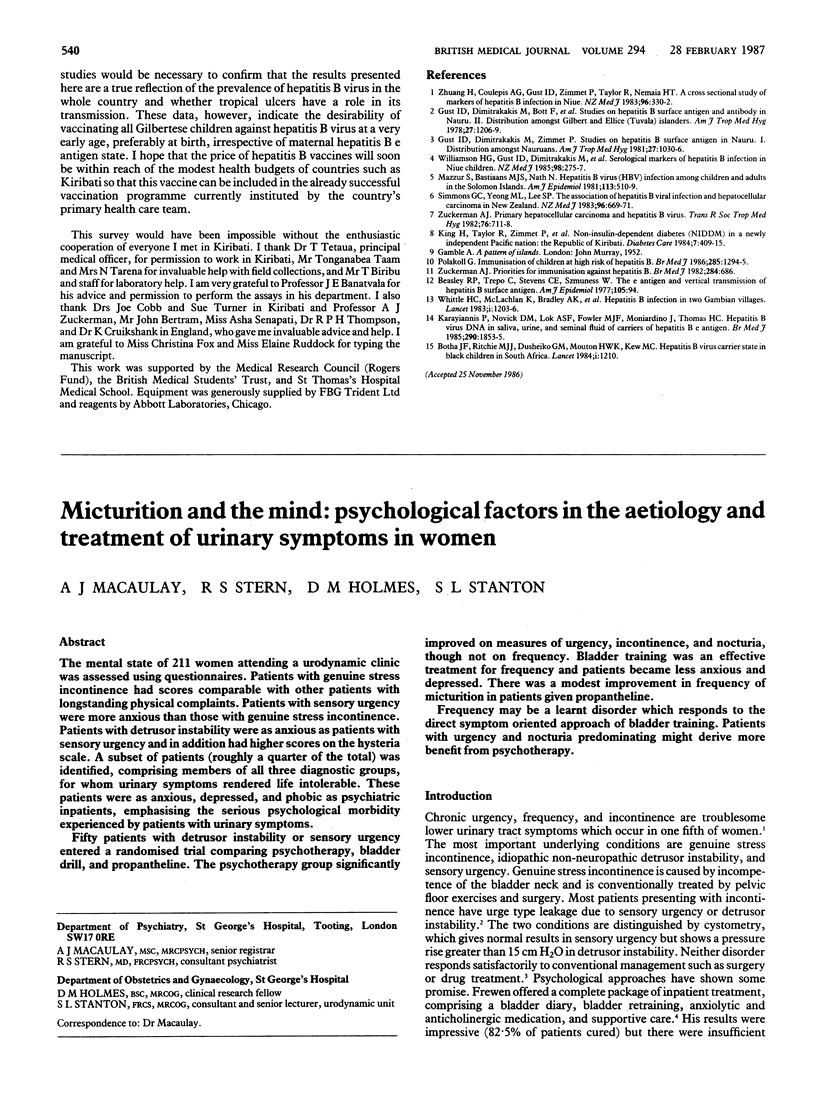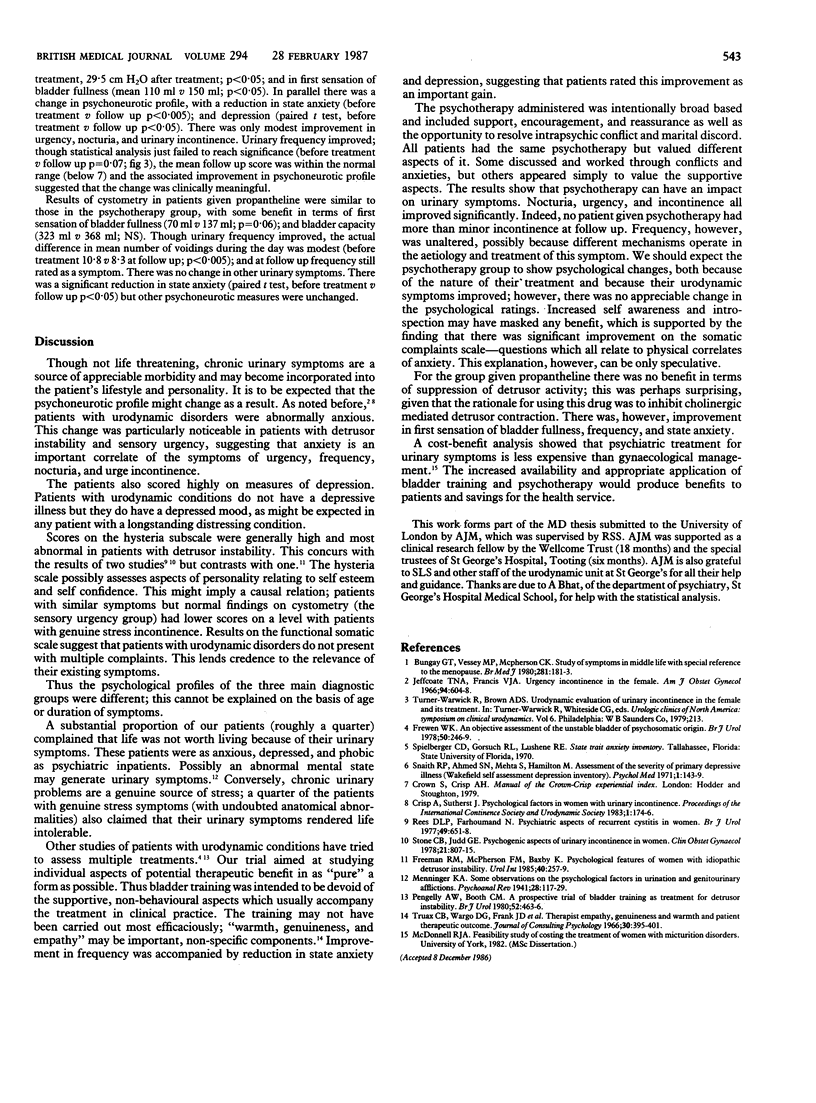Abstract
The mental state of 211 women attending a urodynamic clinic was assessed using questionnaires. Patients with genuine stress incontinence had scores comparable with other patients with longstanding physical complaints. Patients with sensory urgency were more anxious than those with genuine stress incontinence. Patients with detrusor instability were as anxious as patients with sensory urgency and in addition had higher scores on the hysteria scale. A subset of patients (roughly a quarter of the total) was identified, comprising members of all three diagnostic groups, for whom urinary symptoms rendered life intolerable. These patients were as anxious, depressed, and phobic as psychiatric inpatients, emphasising the serious psychological morbidity experienced by patients with urinary symptoms. Fifty patients with detrusor instability or sensory urgency entered a randomised trial comparing psychotherapy, bladder drill, and propantheline. The psychotherapy group significantly improved on measures of urgency, incontinence, and nocturia, though not on frequency. Bladder training was an effective treatment for frequency and patients became less anxious and depressed. There was a modest improvement in frequency of micturition in patients given propantheline. Frequency may be a learnt disorder which responds to the direct symptom oriented approach of bladder training. Patients with urgency and nocturia predominating might derive more benefit from psychotherapy.
Full text
PDF



Selected References
These references are in PubMed. This may not be the complete list of references from this article.
- Bungay G. T., Vessey M. P., McPherson C. K. Study of symptoms in middle life with special reference to the menopause. Br Med J. 1980 Jul 19;281(6234):181–183. doi: 10.1136/bmj.281.6234.181. [DOI] [PMC free article] [PubMed] [Google Scholar]
- Freeman R. M., McPherson F. M., Baxby K. Psychological features of women with idiopathic detrusor instability. Urol Int. 1985;40(5):257–259. doi: 10.1159/000281094. [DOI] [PubMed] [Google Scholar]
- Frewen W. K. An objective assessment of the unstable bladder of psychosomatic origin. Br J Urol. 1978 Jun;50(4):246–249. doi: 10.1111/j.1464-410x.1978.tb02818.x. [DOI] [PubMed] [Google Scholar]
- Jeffcoate T. N., Francis W. J. Urgency incontinence in the female. Am J Obstet Gynecol. 1966 Mar 1;94(5):604–618. doi: 10.1016/0002-9378(66)90395-4. [DOI] [PubMed] [Google Scholar]
- Pengelly A. W., Booth C. M. A prospective trial of bladder training as treatment for detrusor instability. Br J Urol. 1980 Dec;52(6):463–466. doi: 10.1111/j.1464-410x.1980.tb03091.x. [DOI] [PubMed] [Google Scholar]
- Rees D. L., Farhoumand N. Psychiatric aspects of recurrent cystitis in women. Br J Urol. 1977;49(7):651–658. doi: 10.1111/j.1464-410x.1977.tb04547.x. [DOI] [PubMed] [Google Scholar]
- Snaith R. P., Ahmed S. N., Mehta S., Hamilton M. Assessment of the severity of primary depressive illness. Wakefield self-assessment depression inventory. Psychol Med. 1971 Feb;1(2):143–149. doi: 10.1017/s0033291700000064. [DOI] [PubMed] [Google Scholar]
- Stone C. B., Judd G. E. Psychogenic aspects of urinary incontinence in women. Clin Obstet Gynecol. 1978 Sep;21(3):807–815. doi: 10.1097/00003081-197809000-00016. [DOI] [PubMed] [Google Scholar]
- Truax C. B., Wargo D. G., Frank J. D., Imber S. D., Battle C. C., Hoehn-Saric R., Nash E. H., Stone A. R. Therapist empathy, genuineness, and warmth and patient therapeutic outcome. J Consult Psychol. 1966 Oct;30(5):395–401. doi: 10.1037/h0023827. [DOI] [PubMed] [Google Scholar]


